peritoneal mesothelioma
what is peritoneal mesothelioma?
- malignant peritoneal mesothelioma – It is the second most common form of asbestos-related cancer.
- It is otherwise termed as peritoneal cancer stage 4.
- It develops in the lining of the abdomen called peritoneum.
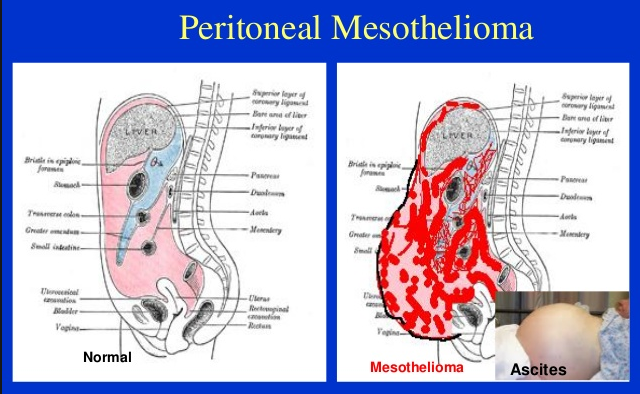
- peritoneal mesothelioma symptoms - Most common symptoms of peritoneal mesothelioma are abdominal swelling and pain due to ascites.
- peritoneal tumor that affect the abdominal cavity often do not cause symptoms until they are at a late stage.
peritoneal cancer survival rate
- Less than 500 people are diagnosed with peritoneal mesothelioma each year.
- Around 20 to 25 percent of all mesothelioma cases include peritoneal mesothelioma.
- For this cancer, mesothelioma treatments include debulking surgery, chemotherapy and radiation
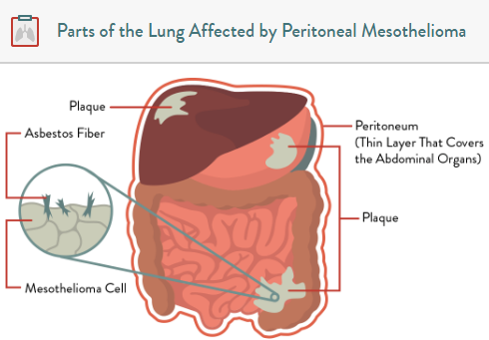
- Cytoreductive surgery with Hyperthermic Intraperitoneal Chemotherapy (HIPEC) is a new promising treatment for peritoneal mesothelioma.
peritoneal mesothelioma symptoms
- Abdominal Pain
- Loss of Appetite
- Blood Clots
- Fatigue
- Fluid Buildup (Ascites)
- Bowel Problems
- Nausea
- Abdominal Swelling
- Fever or Sweating
- Tissue Lumps in the Abdomen
- Anemia
- Seizures

mesothelioma peritoneal - causes
- Ingestion of asbestos fibers.
- Sharp fibers lodge into the lining of the abdomen (peritoneum) and irritates the peritoneum.
- This causes genetic damage to cells.
- It finally results in formation of a malignant tumor that’s secondary peritoneal cancer.
- This process happens in a decade of time.

Location of peritoneal mesothelioma :
- It occurs in the abdominal lining called peritoneum,
- Other mesothelioma occurs in linings of the lungs or heart.
symptoms of peritoneal cancer :
- peritoneal mesothelioma symptoms often develop in the abdomen and/or gastrointestinal system
- Other mesothelioma symptoms develop in chest/lungs.
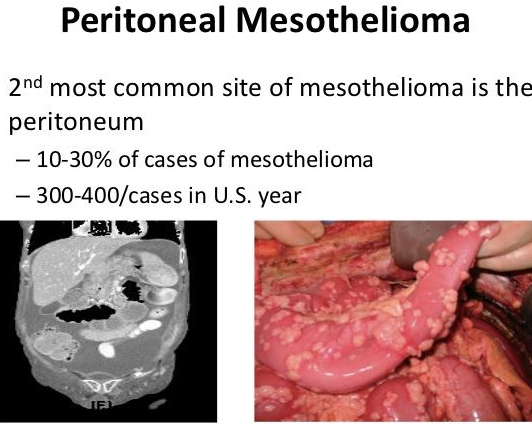
peritoneal cancer prognosis :
- effective treatment for peritoneal mesothelioma is cytoreductive surgery along with Hyperthermic Intraperitoneal Chemotherapy (HIPEC).
- Treatment for other mesothelioma includes radiation and/or surgery.
primary peritoneal cancer life expectancy :
- Peritoneal mesothelioma patients have a better prognosis survival rate of around 5 years.
- Other mesothelioma patients have very less survival rates.
cancer of the peritoneum - diagnosis
- The latest advances in medical technology allow doctors to diagnose easily.
- yet even experienced cancer doctors can struggle to diagnose it accurately.
- In fact, the process can take months.
- Since peritoneal metastasis cancer is related to abdomen it is usually mistaken as the below diseases:
- Irritable bowel syndrome (IBS)
- Hernia
- Other abdominal cancers, especially ovarian cancer
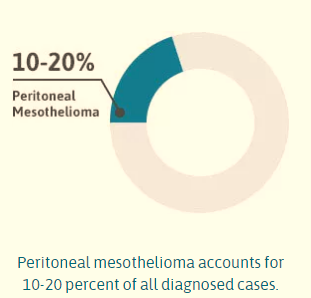
peritoneal cancer prognosis
Surgery –
- known as debulking or cytoreduction,
- the primary goal is to remove most of the tumor(s).
Chemotherapy –
- A systemic drug treatment to kills fast-growing cells.
- It reacts well on mesothelioma cancer cells.
Radiation –
- A blast of targeted radiation to reduce the size of cancer tumors.
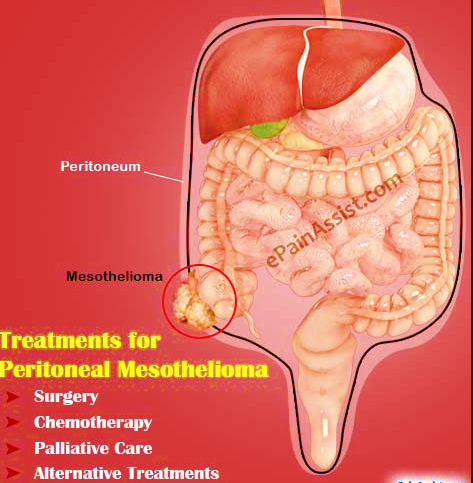
hyperthermic intraperitoneal chemotherapy (hipec)
- This chemotherapy uses a heated chemotherapy “wash” that rinses out the abdominal cavity to kill any cancer cells left after cytoreductive surgery.
- It is considered as more effective than the multimodal treatment.
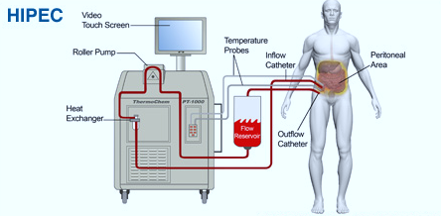
- The chemotherapy drugs used in HIPEC treatments are stronger than that used for systemic treatment.
- As per analysis, peritoneal mesothelioma patients receiving HIPEC treatment survived for 3.4 years.
